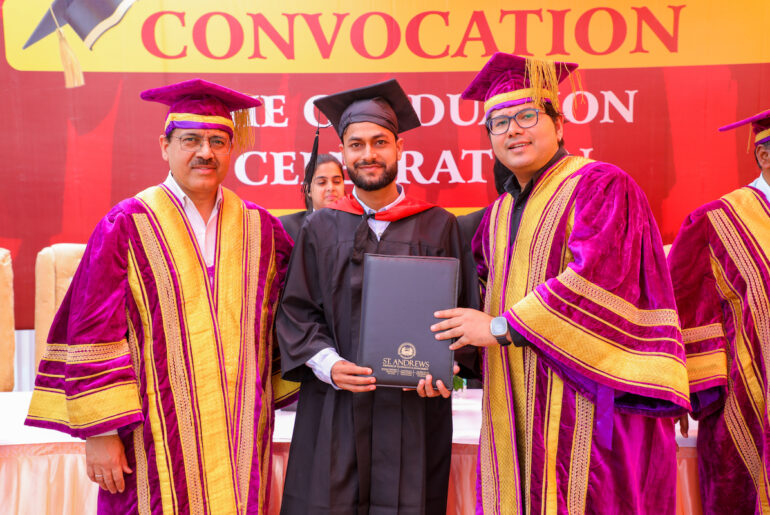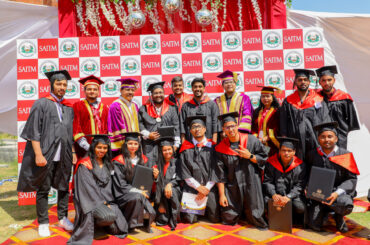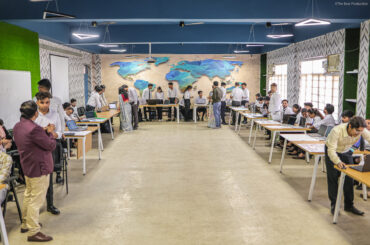Overview of Top BTech Colleges in India
India is home to numerous prestigious institutions offering Bachelor of Technology (BTech) programs across various specializations. Among the Top BTech Colleges in India are the Indian Institutes of Technology (IITs), renowned for their rigorous academics, cutting-edge research, and excellent placement records. Other notable institutions include the National Institutes of Technology (NITs), which also hold high academic and placement standards.
Beyond the IITs and NITs, some private institutions are highly regarded for their comprehensive technical knowledge and strong industry connections. These colleges offer state-of-the-art infrastructure, experienced faculty, and vibrant campus life.
Government colleges such as the Indian Institute of Engineering Science and Technology (IIEST) and Delhi Technological University (DTU) also feature prominently among the Top BTech Colleges in India, offering quality education at a relatively lower cost.
private colleges are noted for their innovative teaching methods and excellent placement opportunities.
St. Andrews Institute of Technology and Management (SAITM) is another emerging institution known for its modern facilities and diverse specialization options in BTech programs. SAITM is a best engineering college in Delhi.
Overall, these institutions provide a robust foundation for aspiring engineers, ensuring a blend of theoretical knowledge and practical skills essential for a successful career in engineering.
Some of the most opted courses in India and St. Andrews college or different Engineering college or Management colleges are as follows:-
- Btech
- Btech CSE
- Btech ETCE
- MTech
- BCA
- BBA
- MBA
- MCA
- DPharma – St. Andrews College of Pharmacy
- BPharma – St. Andrews College of Pharmacy
- BArch – St. Andrews College of Architecture
BTech Course Details

A Bachelor of Technology (BTech) is a four-year undergraduate program focused on engineering and technology. Offered by the Top BTech Colleges in India, it includes specializations such as Computer Science, Mechanical Engineering, Aeronautical Engineering, Communication Engineering, Civil Engineering, Electrical Engineering, and Electronics Engineering.
The curriculum blends theoretical knowledge with practical applications, involving core subjects, electives, lab work, and projects. Students gain skills in problem-solving, design, and innovation. Eligibility typically requires completion of 12th grade with Physics, Chemistry, and Mathematics.
Graduates pursue careers in various industries, higher studies, or entrepreneurial ventures. BTech programs are offered by numerous prestigious institutions, including the Top BTech Colleges in India, known for their robust academic framework and strong placement opportunities.
Highlights of Best B Tech Colleges in India
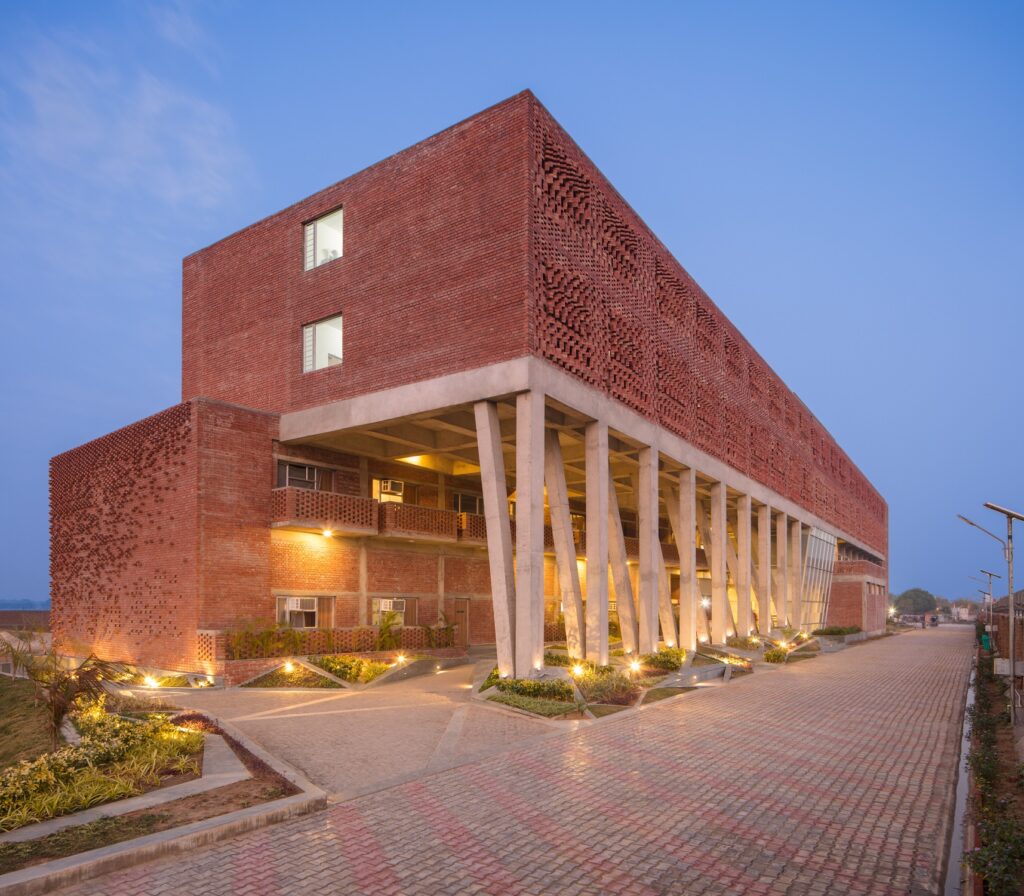
The best engineering colleges in India, including IITs, NITs, BITS Pilani, and VIT, are renowned for their academic excellence, state-of-the-art infrastructure, and strong industry connections. As some of the Top BTech Colleges in India, they offer diverse specializations, experienced faculty, and excellent placement records.
Government colleges like IIEST and DTU, among the Top BTech Colleges in India, provide quality education at lower costs. Private institutions such as VIT and Amrita School of Engineering are also recognized as Top BTech Colleges in India, known for their innovative teaching methods and robust placement support.
Emerging colleges like SAITM offer modern facilities and comprehensive programs, ensuring a blend of theoretical knowledge and practical skills for aspiring engineers.
Top Engineering Colleges Admission Process

Here’s an overview of the Btech Admission Process in India:
Eligibility Criteria
- Candidates must have completed 10+2 (or its equivalent) with core subjects including Physics, Chemistry, and Mathematics.
- A minimum aggregate score (usually around 50-60%) is required, varying by institution.
Entrance Exams
- National Level: JEE Main for admission to NITs, IIITs, and other centrally funded technical institutions. JEE Advanced is required for IITs.
- State Level: Exams like MHT-CET, WBJEE, and KCET for respective state colleges.
- University Level: Exams like BITSAT (BITS Pilani), and VITEEE (VIT).
Application Process
- Register for the entrance exams online.
- Fill in the application form with personal and academic details.
- Upload required documents (photograph, signature, etc.).
- Pay the application fee.
Entrance Exam
- Appear for the entrance exam on the scheduled date.
- Results are usually announced a few weeks after the exam.
Counselling and Seat Allocation
Based on entrance exam scores, candidates participate in counseling sessions.
- Choice filling: Candidates select their preferred colleges and courses.
- Seat allotment is done based on rank, preferences, and seat availability.
Document Verification
- Candidates must provide original documents for verification during counseling.
- Required documents include mark sheets, entrance exam scorecards, identity proof, etc.
Final Admission
- After document verification, candidates pay the admission fee to confirm their seat.
- Colleges issue admission letters and provide details about the commencement of classes.
Entrance Exams for BTech

Here are some of the major entrance exams for BTech admissions in India:
JEE Main (Joint Entrance Examination Main)
- Conducted by: National Testing Agency (NTA)
- Purpose: Admission to various undergraduate engineering programs at NITs, IIITs, and other institutions. It’s also the qualifying exam for JEE Advanced.
JEE Advanced (Joint Entrance Examination Advanced)
- Conducted by: IITs is One of the Best Technology Delhi Indian Institute
- Purpose: Admission to IITs. Candidates must qualify in the entrance exam JEE Main to be eligible for the subsequent entrance exams, JEE Advanced.
BITSAT (BITS Admission Test)
- Conducted by: BITS Pilani
- Purpose: Admission to BTech programs at BITS Pilani, BITS Goa, and BITS Hyderabad.
VITEEE (VIT Engineering Entrance Examination)
- Conducted by: VIT University
- Purpose: Admission to BTech programs at VIT University campuses in Vellore, Chennai, Bhopal, and Amaravati.
MHT CET (Maharashtra Common Entrance Test)
- Conducted by: State Common Entrance Test Cell, Maharashtra
- Purpose: Admission to engineering programs in Maharashtra.
KCET (Karnataka Common Entrance Test)
- Conducted by: Karnataka Examination Authority (KEA)
- Purpose: Admission to BTech programs in Karnataka.
WBJEE (West Bengal Joint Entrance Examination)
- Conducted by: West Bengal Joint Entrance Examination Board
- Purpose: Admission to engineering programs in West Bengal.
KEAM (Kerala Engineering Architecture Medical)
- Conducted by: Commissioner for Entrance Exams, Kerala
- Purpose: Admission to engineering programs in Kerala.
Top BTech Colleges Fee Structure
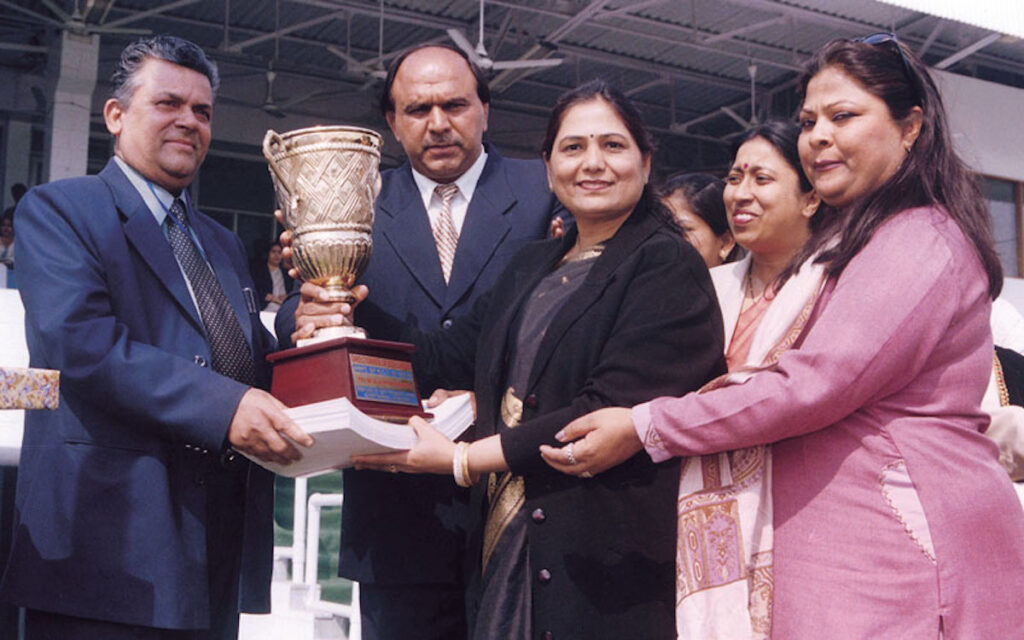
Here’s a general overview of the fee structures at some of the top BTech colleges in India:
Top Engineering Government Colleges
IITs (Indian Institutes of Technology)
- Annual Fee: ₹2,00,000 to ₹3,00,000 (including tuition, hostel, and other charges)
- Note: Fees vary slightly depending on the specific IIT.
St. Andrews Institute of Technology & Management (SAITM):
- Annual Fee: ₹98,500 tuition fees for all branches
- Note: Fees can vary depending on the specific program and amenities chosen.
NITs (National Institutes of Technology)
- Annual Fee: ₹1,50,000 to ₹2,50,000 (including tuition, hostel, and other charges)
- Note: Fee structure may vary by NIT.
IIITs (Indian Institutes of Information Technology)
- Annual Fee: ₹2,00,000 to ₹2,50,000 (including tuition, hostel, and other charges)
- Note: Fees may vary by institute.
Top Engineering Private Colleges
BITS Pilani
- Annual Fee: ₹4,00,000 to ₹5,00,000 (including tuition, hostel, and other charges)
VIT University
- Annual Fee: ₹2,00,000 to ₹3,00,000 (including tuition, hostel, and other charges)
St. Andrews Institute of Technology & Management {SAITM}
- Annual Fee: ₹98,500 tuition fees for all branches
Shiv Nadar University
- Annual Fee: ₹2,50,000 to ₹3,50,000 (including tuition, hostel, and other charges)
Top Btech Colleges Curriculum

Here’s a general overview of what you can expect from the BTech curriculum at the Top BTech Colleges in India:
Foundation Courses
- Mathematics: Calculus, Linear Algebra, Differential Equations, Probability and Statistics
- Physics: Mechanics, Electromagnetism, Optics, Quantum Mechanics
- Chemistry: General Chemistry, Organic Chemistry, Inorganic Chemistry
- Engineering Drawing: Basic drawing, CAD
Core Engineering Courses
- Basic Engineering: Mechanics, Thermodynamics, Fluid Mechanics, Material Science
- Programming: Introduction to Programming, Data Structures, Algorithms, Operating Systems
- Electronics: Circuit Theory, Digital Electronics, Analog Electronics, Communication Systems
- Electrical Engineering: Electronics Engineering, Power Systems, Control Systems,
- Mechanical Engineering: Manufacturing Processes, Machine Design, Thermal Engineering
- Civil Engineering: Structural Analysis, Geotechnical Engineering, Environmental Engineering
Specialization Courses
- Computer Science: Database Management Systems, Software Engineering, Automobile Engineering, Computer Networks, Artificial Intelligence, Machine Learning
- Electronics and Communication: Embedded Systems, VLSI Design, Signal Processing, Communication Networks
- Mechanical Engineering: Robotics, CAD/CAM, Fluid Dynamics, Heat Transfer
- Civil Engineering: Structural Design, Construction Management, Surveying, Transportation Engineering
Practical and Laboratory Work
- Laboratories: Physics Lab, Chemistry Lab, Computer Lab, Electronics Lab
- Workshops: Basic Manufacturing, Electrical and Electronics Workshop
- Project Work: Individual or group projects to apply theoretical knowledge to practical problems.
Industry Exposure and Internships
- Internships: Opportunities to work in industries related to the student’s field of study, often during the summer or as part of a final-year project.
- Industrial Visits: Visits to manufacturing units, research labs, and other industrial setups to understand real-world applications.
Electives and Open Courses
- Electives: Advanced courses in specialized areas like Cybersecurity, Big Data, Renewable Energy, Advanced Materials.
- Open Courses: Subjects outside the core specialization, allowing students to explore interests beyond their major.
Soft Skills and Personality Development
- Communication Skills: Courses or workshops aimed at improving written and oral communication.
- Leadership and Teamwork: Activities and courses designed to enhance leadership skills and ability to work in teams.
Capstone Project
- Final-Year Project: A comprehensive project that integrates the knowledge and skills acquired throughout the program, often involving research, design, and implementation.
Types of Engineering Colleges
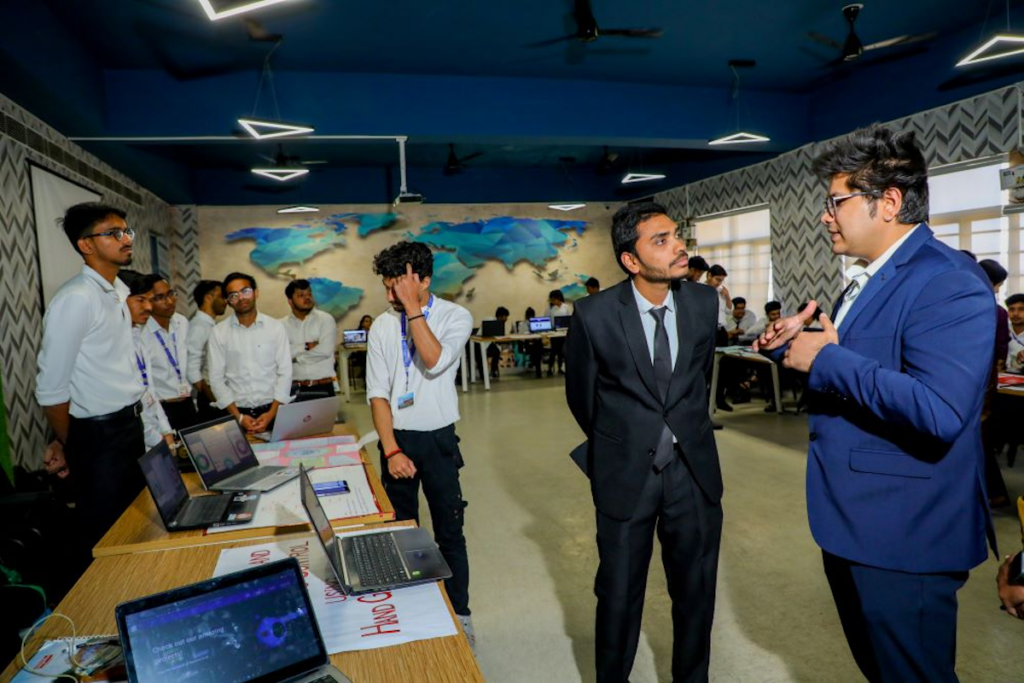
Here’s a comprehensive overview of the different types of engineering colleges:
Indian Institutes of Technology (IITs)
- Description: Premier autonomous public technical universities.
- Funding: Central Government.
- Features: Renowned for high academic standards, world-class faculty, cutting-edge research, and excellent infrastructure.
- Examples: IIT Bombay, IIT Delhi, IIT Madras.
National Institutes of Technology (NITs)
- Description: Autonomous public engineering colleges.
- Funding: Central Government.
- Features: Known for quality education, good infrastructure, and strong placement records.
- Examples: NIT Trichy, NIT Surathkal, NIT Warangal.
Indian Institutes of Information Technology (IIITs)
- Description: Institutes focused on information technology and computer science education and research.
- Funding: Central Government, State Government, and private partnerships.
- Features: Specialize in IT-related courses with strong industry collaboration.
- Examples: IIIT Hyderabad, IIIT Allahabad, IIIT Bangalore.
State Government Engineering Colleges
- Description: Public engineering colleges managed and funded by state governments.
- Funding: State Government.
- Features: Provide affordable education and cater to regional needs.
- Examples: College of Engineering, Guindy (Tamil Nadu), Jadavpur University (West Bengal), Punjab Engineering College (Chandigarh).
Private Engineering Colleges
- Description: Privately managed institutions offering engineering education.
- Funding: Private organizations or trusts.
- Features: Generally have modern infrastructure, diverse courses, and good placement opportunities; fees are usually higher than public colleges.
- Examples: St. Andrews Institute of Technology and Management (SAITM), Gurgaon.
Deemed Universities
- Description: Institutions granted the status of a university by the Department of Higher Education.
- Funding: Self-funded (private trusts or societies).
- Features: Autonomy in setting their curriculum and academic policies; often known for specialized programs and research.
- Examples: Birla Institute of Technology and Science (BITS Pilani), Thapar Institute of Engineering and Technology, Amrita Vishwa Vidyapeetham.
Central Universities with Engineering Departments
- Description: Central government-funded universities offering engineering programs through dedicated departments or schools.
- Funding: Central Government.
- Features: Often known for multidisciplinary research and education.
- Examples: University of Hyderabad, Jamia Millia Islamia, Aligarh Muslim University.
State Private Universities
- Description: Private universities established by state legislations.
- Funding: Private.
- Features: Offer diverse programs, modern infrastructure, and industry-oriented education; fees are typically higher.
- Examples: Ashoka University, O.P. Jindal Global University, Shiv Nadar University.
Government Aided Engineering Colleges
- Description: Private institutions that receive partial funding from the government.
- Funding: Combination of government and private funding.
- Features: Often have moderate fee structures and combine public and private education benefits.
- Examples: PSG College of Technology (Coimbatore), BIT Sindri (Jharkhand).
Autonomous Colleges
- Description: Colleges granted academic autonomy by the University Grants Commission (UGC) but are affiliated with a university.
- Funding: Varies (can be government or private).
- Features: Flexibility in curriculum design, assessment methods, and academic governance.
- Examples: College of Engineering Pune (CoEP), RV College of Engineering (Bangalore), Thiagarajar College of Engineering (Madurai).
Top Government BTech Colleges in India
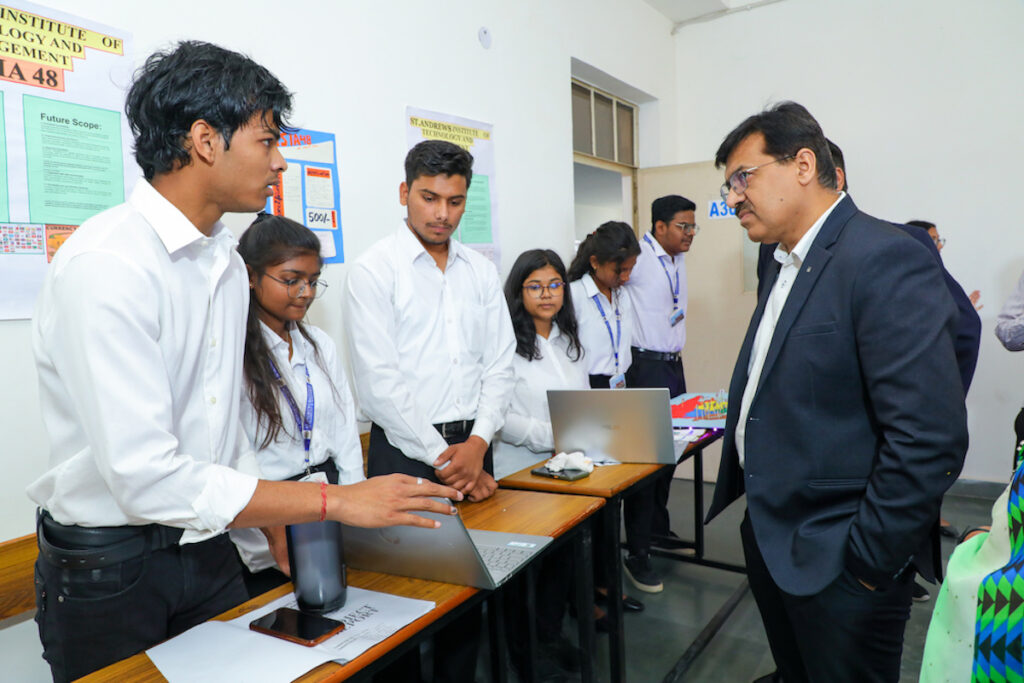
Here are some of the top engineering government colleges in India:
Delhi Technological University (DTU)
- Location: Delhi
- Highlights: Known for its strong industry connections and research initiatives. Offers a wide range of engineering programs.
St. Andrews Institute of Technology & Management(SAITM)
- Location: Gurgaon, Haryana
- Highlights: Offers a variety of engineering programs with strong industry connections and good placement opportunities.
Punjab Engineering College (PEC)
- Location: Chandigarh
- Highlights: Renowned for its engineering courses and research output. It has a good placement record.
Jawaharlal Nehru Technological University (JNTU)
- Location: Hyderabad, Telangana
- Highlights: A prominent engineering university in the southern part of India, offering diverse engineering programs.
Government College of Technology (GCT)
- Location: Coimbatore, Tamil Nadu
- Highlights: Offers a variety of engineering programs with a focus on research and development.
Bengal Engineering and Science University (BESU)
- Location: Shibpur, West Bengal
- Highlights: One of the oldest engineering institutions in India, now known as IIEST Shibpur.
Institute of Engineering and Technology (IET)
- Location: Lucknow, Uttar Pradesh
- Highlights: Known for its engineering courses and good placement opportunities.
Mahatma Gandhi Institute of Technology (MGIT)
- Location: Hyderabad, Telangana
- Highlights: Offers a variety of engineering courses with a focus on practical learning.
Government Engineering College (GEC)
- Location: Gandhinagar, Gujarat
- Highlights: Offers a range of engineering programs and has a strong focus on research and industry collaboration.
Rajasthan Technical University (RTU)
- Location: Kota, Rajasthan
- H0ighlights: Offers a wide range of engineering disciplines with a focus on industry and research.
Government College of Engineering (GCE)
- Location: Aurangabad, Maharashtra
- Highlights: Known for its engineering programs and good infrastructure.
Top Private Engineering Colleges in India

Here’s an updated list of top private engineering colleges in India:
St. Andrews Institute of Technology & Management (SAITM)
Location: Gurgaon, Haryana
Highlights: Known for its strong industry connections, research initiatives, and good placement opportunities. Offers a range of engineering programs.
Vellore Institute of Technology (VIT)
Location: Vellore, Tamil Nadu
Highlights: Renowned for its engineering programs and excellent placement record. Offers multiple campuses and a wide range of specializations.
Amrita Vishwa Vidyapeetham:
Location: Coimbatore, Tamil Nadu
Highlights: Known for its emphasis on research, innovation, and strong placement record.
Shiv Nadar University {SNU}
Location: Greater Noida, Uttar Pradesh
Highlights: Offers a range of engineering programs with a focus on research and development.
Birla Institute of Technology and Science {BITS}
Location: Pilani, Rajasthan (and other campuses)
Highlights: Highly regarded for its engineering programs and strong placement record. Multiple campuses offer diverse specializations.
Sastra University:
Location: Thanjavur, Tamil Nadu
Highlights: Known for its engineering programs and strong research focus.
Kalinga Institute of Industrial Technology (KIIT)
Location: Bhubaneswar, Odisha
Highlights: Offers a wide range of engineering disciplines with good placement opportunities and infrastructure.
BTech Scope
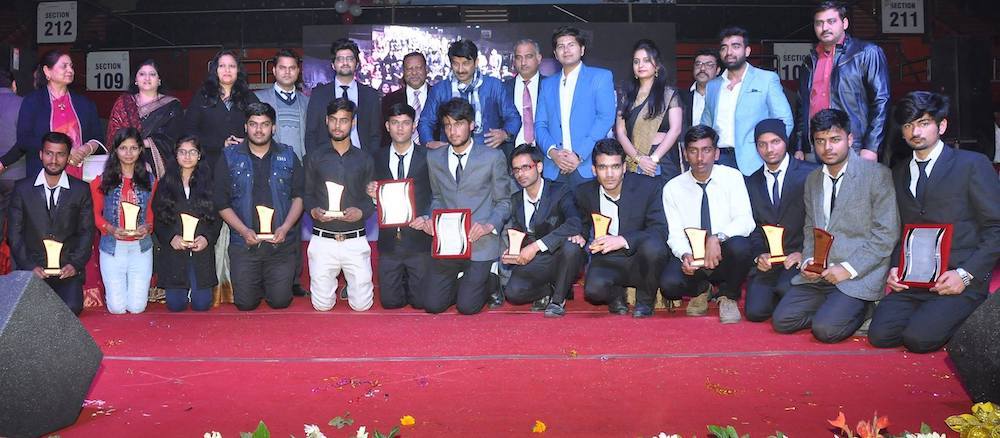
Here’s an overview of the scope after completing a BTech:
Job Opportunities in Various Sectors
A BTech degree equips you with the skills required to work in diverse industries. Some of the sectors where BTech graduates are highly sought after include:
- Information Technology (IT) and Software: Roles such as Software Developer, Systems Analyst, Network Engineer, and IT Consultant.
- Electronics and Communication: Positions like Electronics Engineer, Communication Engineer, and Network Planner.
- Mechanical Engineering: Careers in manufacturing, automotive, aerospace, and robotics as Mechanical Engineers, Design Engineers, and Production Managers.
- Civil Engineering: Opportunities in construction, infrastructure development, urban planning, and project management.
- Chemical Engineering: Roles in pharmaceuticals, petrochemicals, and process engineering.
- Electrical Engineering: Positions in power generation, renewable energy, and electrical design and maintenance.
Higher Education
Pursuing higher education can enhance your knowledge and open doors to specialized career opportunities. Options include:
- MTech/MS: Specialize in a specific area of engineering or technology.
- MBA: Combine technical knowledge with management skills for roles in management, consulting, and entrepreneurship.
- PhD: Engage in advanced research and academic roles.
Entrepreneurship;
With the technical knowledge gained during BTech, you can start your own venture. Fields like IT, manufacturing, and consulting offer ample opportunities for entrepreneurship.
Research and Development:
If you are inclined towards innovation and development, a career in research can be rewarding. You can work in R&D departments of companies or research institutions, contributing to advancements in technology and engineering.
Teaching and Academia
With further qualifications such as an MTech or PhD, you can pursue a career in academia. Teaching at engineering colleges and universities allows you to shape the next generation of engineers.
Government Jobs
Various government departments and public sector undertakings (PSUs) offer jobs for BTech graduates. These roles often come with job security, good salary packages, and additional perks.
Consulting Services
Engineering graduates can work as consultants, providing expert advice in their field of specialization. This can include IT consulting, management consulting, and technical consulting.
BTech Specializations
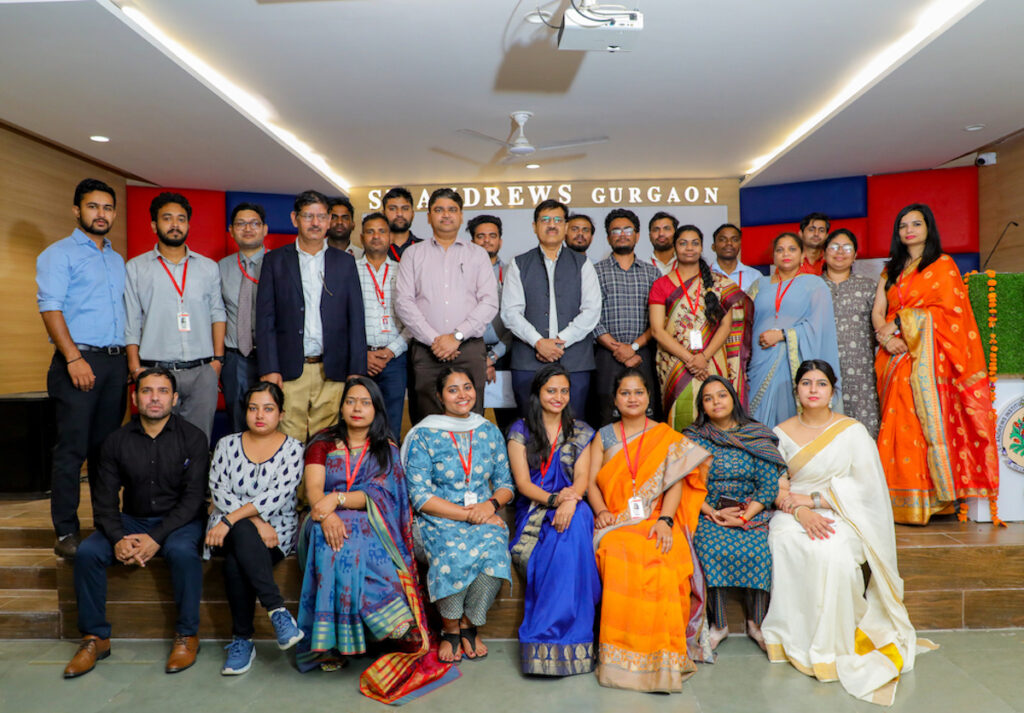
Here are some of the popular BTech specializations:
Computer Science and Engineering (CSE)
Software Development
Data Science
Artificial Intelligence and Machine Learning
Cybersecurity
Cloud Computing
Information Technology (IT)
Network Security
Database Management Systems
Information Systems
Web Technology
Electronics and Communication Engineering (ECE)
Embedded Systems
VLSI Design
Telecommunications
Signal Processing
Internet of Things (IoT)
Electrical Engineering (EE)
Power Systems
Renewable Energy
Control Systems
Electrical Machines
Smart Grids
Mechanical Engineering (ME)
Robotics
Mechatronics
Thermal Engineering
Manufacturing Engineering
Automotive Engineering
Civil Engineering (CE)
Structural Engineering
Transportation Engineering
Environmental Engineering
Geotechnical Engineering
Construction Management
Chemical Engineering
Process Engineering
Materials Science
Petrochemical Engineering
Biochemical Engineering
Biotechnology Engineering
Genetic Engineering
Bioinformatics
Pharmaceutical Biotechnology
Industrial Biotechnology
Agricultural Biotechnology
Aerospace Engineering
Aerodynamics
Propulsion
Avionics
Space Technology
Aircraft Design
Automobile Engineering
Vehicle Dynamics
Automotive Design
Electric and Hybrid Vehicles
Alternative Fuels
Automotive Electronics
Petroleum Engineering
Reservoir Engineering
Drilling Engineering
Production Engineering
Petrochemical Engineering
Offshore Engineering
Industrial and Production Engineering
Manufacturing Systems
Quality Engineering
Operations Research
Supply Chain Management
Industrial Automation
Metallurgical and Materials Engineering
Metallurgy
Materials Science
Nanotechnology
Corrosion Engineering
Ceramic Engineering
Environmental Engineering
Waste Management
Water Resources Engineering
Air Pollution Control
Environmental Impact Assessment
Sustainable Development
Marine Engineering
Naval Architecture
Ocean Engineering
Marine Propulsion
Offshore Structures
Marine Systems and Equipment
Career Opportunities After BTech
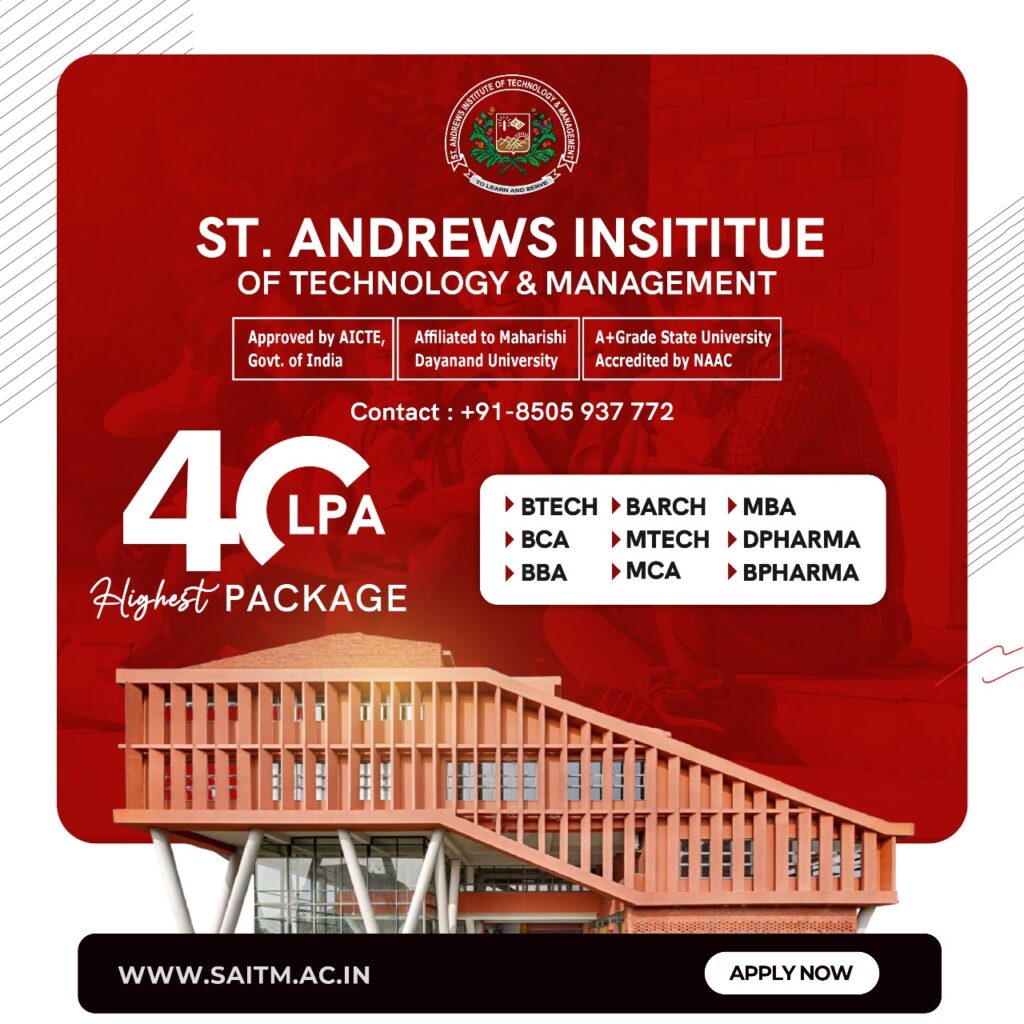
Here are some prominent career paths you can consider:
Software Development
- Role: Software Developer, Software Engineer, Full Stack Developer
- Skills Required: Programming languages (e.g., Java, C++, Python), software development methodologies, problem-solving
- Industries: IT companies, product-based companies, startups
Data Science and Analytics
- Role: Data Scientist, Data Analyst, Business Analyst
- Skills Required: Statistics, data visualization, machine learning, programming (Python, R), SQL
- Industries: Finance, healthcare, retail, technology
Cybersecurity
- Role: Cybersecurity Analyst, Security Engineer, Ethical Hacker
- Skills Required: Network security, encryption, ethical hacking, risk assessment
- Industries: Government agencies, IT companies, financial institutions
Cloud Computing
- Role: Cloud Solutions Architect, Cloud Engineer, DevOps Engineer
- Skills Required: Cloud platforms (AWS, Azure, Google Cloud), virtualization, automation tools (e.g., Docker, Kubernetes)
- Industries: IT services, engineering technology firms, consultancy
Artificial Intelligence and Machine Learning
- Role: AI Engineer, Machine Learning Engineer, Research Scientist
- Skills Required: Machine learning algorithms, neural networks, natural language processing, programming (Python, TensorFlow, PyTorch)
- Industries: Healthcare, automotive, finance, technology
Network Administration
- Role: Network Administrator, Network Engineer, Systems Administrator
- Skills Required: Network protocols, routing and switching, network security, hardware configuration
- Industries: Telecommunications, IT services, large enterprises
Embedded Systems
- Role: Embedded Systems Engineer, Firmware Engineer, IoT Developer
- Skills Required: Embedded C/C++, microcontrollers, real-time operating systems, hardware-software integration
- Industries: Consumer electronics, automotive, aerospace
Research and Development;
- Role: Research Scientist, Technical Researcher, R&D Engineer
- Skills Required: Deep technical knowledge, innovation, problem-solving, advanced degree (often required)
- Industries: Academia, technology companies, research institutions
Higher Education:
- Options: MTech/MS, MBA, PhD
- Fields: Specialization in advanced topics, management, research
- Benefits: Enhanced knowledge, career advancement, teaching and academic roles
Entrepreneurship:
- Role: Startup Founder, Tech Entrepreneur
- Skills Required: Innovation, business acumen, technical expertise, risk management
- Industries: Technology startups, product development, consultancy
IT Consulting
- Role: IT Consultant, Systems Consultant, Technical Consultant
- Skills Required: Domain knowledge, problem-solving, client management, technical skills
- Industries: Consultancy firms, technology companies, financial services
Quality Assurance and Testing
- Role: QA Engineer, Test Engineer, Automation Engineer
- Skills Required: Testing methodologies, automation tools (e.g., Selenium), attention to detail, programming
- Industries: Software companies, IT services, product-based firms
Emerging Trends and Specializations:
- Blockchain Technology: Blockchain Developer, Blockchain Architect
- Quantum Computing: Quantum Computing Scientist, Quantum Software Developer
- Robotics and Automation: Robotics Engineer, Automation Specialist
- Augmented Reality (AR) and Virtual Reality (VR): AR/VR Developer, 3D Artist
Preparation and Skill Development:
- Certifications: AWS Certified Solutions Architect, Certified Ethical Hacker (CEH), Google Data Engineer
- Online Courses: Coursera, edX, Udemy for specialized skills
- Projects: Building a portfolio with hands-on projects and internships
- Networking: Joining professional networks, attending conferences, engaging in tech communities
Engineering Colleges: Courses vs Fees
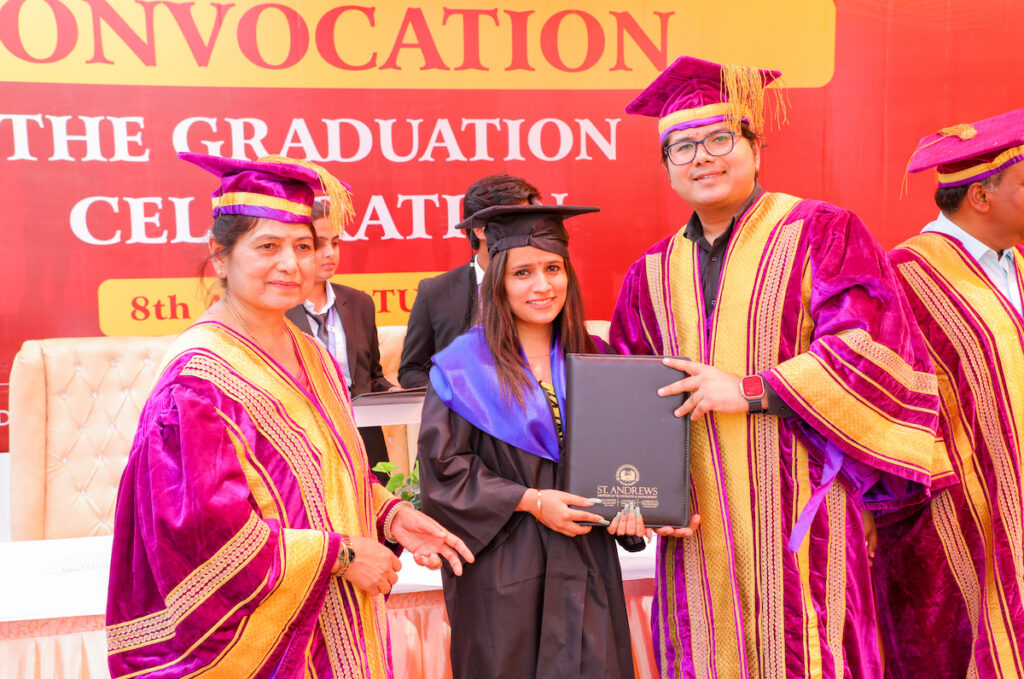
Here’s a look at some top engineering colleges in India, highlighting their popular courses and approximate fee structures.
Indian Institute of Technology (IIT) Bombay
- Popular Courses:
- BTech in Computer Science and Engineering, BTech in Electrical Engineering and BTech in Mechanical Engineering
- Approximate Fees:
- ₹2,00,000 – ₹2,50,000 per year
Indian Institute of Technology (IIT) Delhi
- Popular Courses:
- BTech in Civil Engineering, BTech in Chemical Engineering and BTech in Electrical Engineering
- Approximate Fees:
- ₹2,00,000 – ₹2,50,000 per year
Indian Institute of Technology (IIT) Madras
- Popular Courses:
- BTech in Computer Science and Engineering, BTech in Aerospace Engineering and BTech in Electrical Engineering
- Approximate Fees:
- ₹2,00,000 – ₹2,50,000 per year
Birla Institute of Technology and Science (BITS) Pilani:
- Popular Courses:
- B.E. in Computer Science, B.E. in Electrical and Electronics Engineering and B.E. in Mechanical Engineering
- Approximate Fees:
- ₹4,00,000 – ₹4,50,000 per year
Vellore Institute of Technology (VIT) Vellore
- Popular Courses:
- BTech in Computer Science and Engineering, BTech in Information Technology and BTech in Electronics and Communication Engineering
- Approximate Fees:
- ₹1,98,000 – ₹2,98,000 per year
St. Andrews Institute of Technology and Management (SAITM) Gurgaon
- Popular Courses:
- BTech in Computer Science and Engineering, BTech – Computer Science Engineering in Artificial Intelligence and Machine Learning (AI/ML) and BTech – Computer Science Technology (CST)
- Approximate Fees:
- ₹98,500 per year
Thapar Institute of Engineering and Technology, Patiala
- Popular Courses:
- B.E. in Computer Engineering, B.E. in Electronics and Communication Engineering and B.E. in Mechanical Engineering
- Approximate Fees:
- ₹2,50,000 – ₹3,00,000 per year
ROI of Engineering Colleges
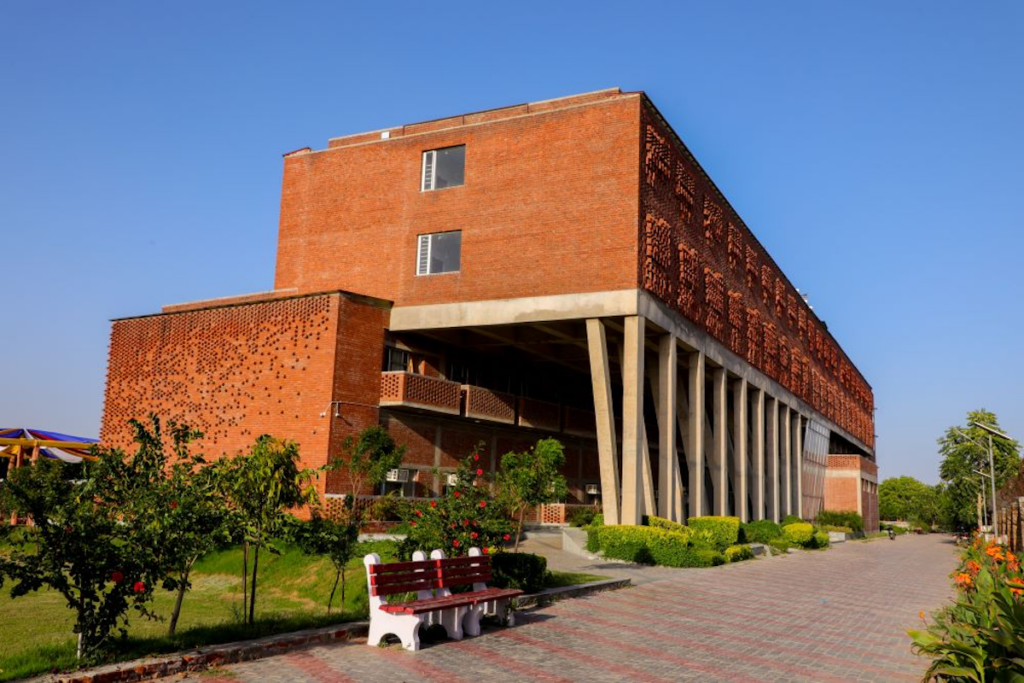
Here’s a list of private engineering colleges in India with a focus on Return on Investment (ROI):
St. Andrews Institute of Technology & Management{SAITM}
- Location: Gurgaon, Haryana
- Highlights: Offers competitive fees and has a strong placement record with good average salary packages, ensuring a favorable ROI.
Vellore Institute of Technology {VIT}
- Location: Vellore, Tamil Nadu
- Highlights: Known for its strong placement cell and high average salary packages. The ROI is favorable due to the high salaries and relatively moderate fees compared to other top private institutes.
Amrita Vishwa Vidyapeetham :
- Location: Coimbatore, Tamil Nadu
- Highlights: Known for high placement rates and good starting salaries, leading to a positive ROI.
Shiv Nadar University (SNU)
- Location: Greater Noida, Uttar Pradesh
- Highlights: Provides strong placement opportunities and competitive salaries, making it a good investment for students.
Birla Institute of Technology and Science{BITS}
- Location: Pilani, Rajasthan (and other campuses)
- Highlights: Known for its high placement rates and excellent salary packages. The ROI is very favorable due to the high returns relative to the fees.
Sastra University
- Location: Thanjavur, Tamil Nadu
- Highlights: Offers competitive fees and good placement rates, leading to a favorable ROI.
Kalinga Institute of Industrial Technology {KIIT}
- Location: Bhubaneswar, Odisha
- Highlights: Known for its robust placement cell and good salary packages, offering a strong ROI.
Top Recruiters for BTech Graduates
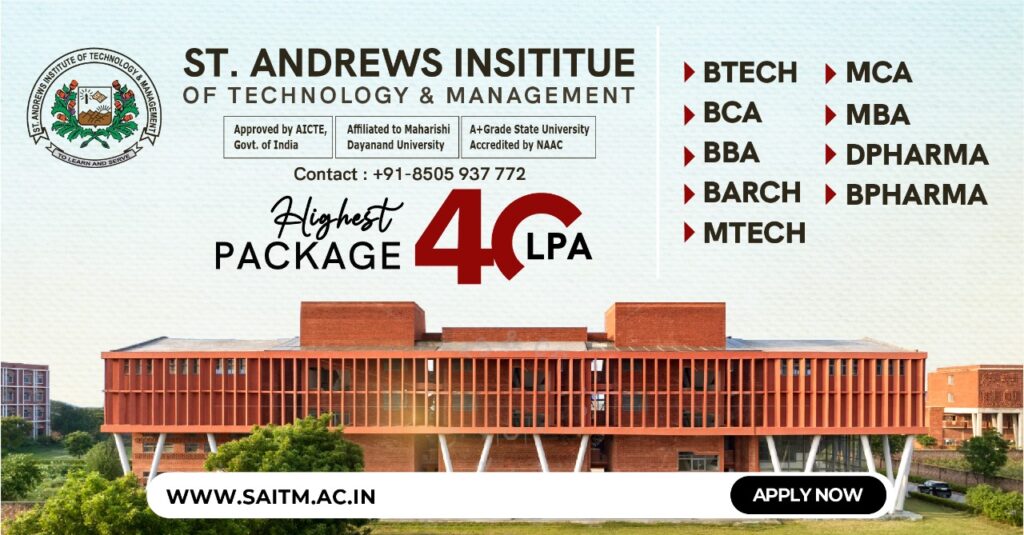
Here are some of the top recruiters:
Tata Consultancy Services (TCS)
- Sector: IT Services
- Details: One of the largest employers of engineering graduates in India, known for offering diverse career opportunities and training programs.
Infosys
- Sector: IT Services
- Details: A major IT services company with a strong recruitment presence in the engineering sector, offering roles in technology, consulting, and management.
Wipro
- Sector: IT Services
- Details: A prominent IT services firm that recruits engineering graduates for various roles in software development, consulting, and project management.
Cognizant
- Sector: IT Services
- Details: Known for hiring engineering graduates for roles in technology and consulting, with a focus on providing comprehensive career development.
Accenture
- Sector: Consulting and Professional Services
- Details: Recruits engineering graduates for roles in technology, consulting, and strategy, offering significant career growth opportunities.
IBM
- Sector: Technology and Consulting
- Details: Offers diverse roles in technology, research, and consulting, with a focus on innovation and advanced technologies.
Microsoft
- Sector: Technology
- Details: A top recruiter for engineering graduates, especially for roles in software development, research, and engineering.
- Sector: Technology
- Details: Known for its competitive recruitment process and high salary packages, especially for roles in software engineering and data analysis.
Amazon
- Sector: E-commerce and Technology
- Details: Recruits engineering graduates for roles in technology, logistics, and operations, with opportunities for significant career advancement.
Qualcomm
- Sector: Semiconductor and Telecommunications
- Details: Offers specialized roles in engineering, particularly in semiconductor design and telecommunications.
Intel
- Sector: Semiconductor and Technology
- Details: Known for hiring engineers for roles in semiconductor design, technology development, and research.
Adobe
- Sector: Technology
- Details: Recruits for roles in software development, technology, and creative solutions, offering competitive packages and growth opportunities.
SAP
- Sector: Enterprise Software
- Details: Offers roles in software development, consulting, and technology solutions, with a focus on enterprise applications.
Oracle
- Sector: Technology and Consulting
- Details: Known for hiring engineering graduates for roles in software development, consulting, and database management.
HCL Technologies
- Sector: IT Services
- Details: Offers diverse career opportunities in technology and consulting, with a strong recruitment presence in the engineering sector.
Salary After Btech

Here’s a general overview of the salary ranges for BTech graduates:
Entry-Level Salary
Range: ₹3,00,000 to ₹6,00,000 per annum
Details: This is typically the starting salary for fresh graduates. It can vary based on the reputation of the college, the sector, and the role.
Mid-Level Salary (3-5 Years Experience)
Range: ₹6,00,000 to ₹12,00,000 per annum
Details: With a few years of experience, salaries increase significantly. Specialized roles or positions in high-demand sectors often offer higher salaries.
Senior-Level Salary (5-10 Years Experience)
Range: ₹12,00,000 to ₹20,00,000 per annum
Details: At this level, professionals typically have managerial or technical leadership roles, which come with higher compensation.
Specialized Roles
Range: ₹10,00,000 to ₹25,00,000 per annum
Details: Roles in specialized fields such as Data Science, Artificial Intelligence, Cybersecurity, and Blockchain often command higher salaries.
Factors Influencing Salary
Engineering Discipline: Certain branches like Computer Science Engineering, Electronics and Instrumentation Engineering tend to have higher starting salaries compared to others.
College Reputation: Graduates from top engineering colleges (IITs, NITs, and other renowned private institutions) usually command higher salaries.
Location: Salaries can be higher in metropolitan areas like Bangalore, Hyderabad, and Mumbai compared to smaller cities.
Company: Major tech companies, multinational corporations, and startups offer varying salary packages. Global tech giants often offer higher salaries compared to smaller companies.
Zone-Wise Engineering Colleges in India

Here’s a zone-wise breakdown of some of the top engineering colleges in India:
North Zone
1. Indian Institute of Technology (IIT) Delhi
- Location: Delhi
- Highlights: Premier institution known for excellent faculty, cutting-edge research, and strong industry connections.
2. Delhi Technological University (DTU)
- Location: Delhi
- Highlights: Known for its strong engineering programs, vibrant campus life, and excellent placement records.
3. Indian Institute of Technology (IIT) Roorkee
- Location: Uttarakhand
- Highlights: One of the oldest engineering institutions in India, known for its research and academic excellence.
4. National Institute of Technology (NIT) Kurukshetra
- Location: Haryana
- Highlights: Offers a wide range of engineering programs with a focus on practical learning and research.
5. St. Andrews Institute of Technology and Management
- Location: Gurgaon, Haryana
- Highlights: Known for its robust academic programs, research initiatives, and industry collaborations.
South Zone
1. Indian Institute of Technology (IIT) Madras
- Location: Chennai, Tamil Nadu
- Highlights: Leading engineering institution with strong emphasis on research, innovation, and entrepreneurship.
2. Vellore Institute of Technology (VIT)
- Location: Vellore, Tamil Nadu
- Highlights: Offers diverse engineering programs, modern infrastructure, and excellent placement opportunities.
4. National Institute of Technology (NIT) Surathkal
- Location: Karnataka
- Highlights: Known for its academic excellence, research output, and strong industry connections.
5. Anna University
- Location: Chennai, Tamil Nadu
- Highlights: Offers a wide range of engineering programs with a focus on technical knowledge and research.
East Zone
1. Indian Institute of Technology (IIT) Kharagpur
- Location: West Bengal
- Highlights: One of the premier IITs known for its research, academic excellence, and extensive alumni network.
2. National Institute of Technology (NIT) Rourkela
- Location: Odisha
- Highlights: Offers a variety of engineering programs with a strong focus on research and practical learning.
3. Jadavpur University
- Location: Kolkata, West Bengal
- Highlights: Known for its engineering programs, research output, and vibrant academic environment.
4. Indian Institute of Technology (IIT) Patna
- Location: Bihar
- Highlights: Emerging as a leading institution with a focus on research, innovation, and academic excellence.
5. Birla Institute of Technology (BIT) Mesra
- Location: Jharkhand
- Highlights: Offers strong engineering programs with a focus on technical education and research.
West Zone
1. Indian Institute of Technology (IIT) Bombay
- Location: Mumbai, Maharashtra
- Highlights: Leading IIT known for its research, innovation, and strong industry connections.
2. College of Engineering, Pune (CoEP)
- Location: Pune, Maharashtra
- Highlights: One of the oldest engineering colleges in India, known for its strong academic programs and industry ties.
3. Veermata Jijabai Technological Institute (VJTI)
- Location: Mumbai, Maharashtra
- Highlights: Offers diverse engineering programs with a focus on practical learning and industry collaboration.
4. Sardar Vallabhbhai National Institute of Technology (SVNIT)
- Location: Surat, Gujarat
- Highlights: Known for its academic excellence, research initiatives, and strong placement records.
5. Birla Institute of Technology and Science (BITS) Pilani
- Location: Rajasthan
- Highlights: Renowned for its academic excellence, research output, and strong alumni network.
Central Zone
1. Indian Institute of Technology (IIT) Kanpur
- Location: Uttar Pradesh
- Highlights: Leading IIT known for its research, innovation, and academic excellence.
2. Malaviya National Institute of Technology (MNIT)
- Location: Jaipur, Rajasthan
- Highlights: Offers a wide range of engineering programs with a focus on technical education and research.
3. Maulana Azad National Institute of Technology (MANIT)
- Location: Bhopal, Madhya Pradesh
- Highlights: Known for its strong engineering programs, research initiatives, and excellent placement records.
4. Indian Institute of Information Technology, Allahabad (IIIT-A)
- Location: Uttar Pradesh
- Highlights: Specializes in information technology and computer science programs with strong industry collaboration.
5. Indian Institute of Technology (IIT) BHU
- Location: Varanasi, Uttar Pradesh
- Highlights: Offers comprehensive engineering programs with a focus on research and innovation.
Placement-Wise Engineering Colleges
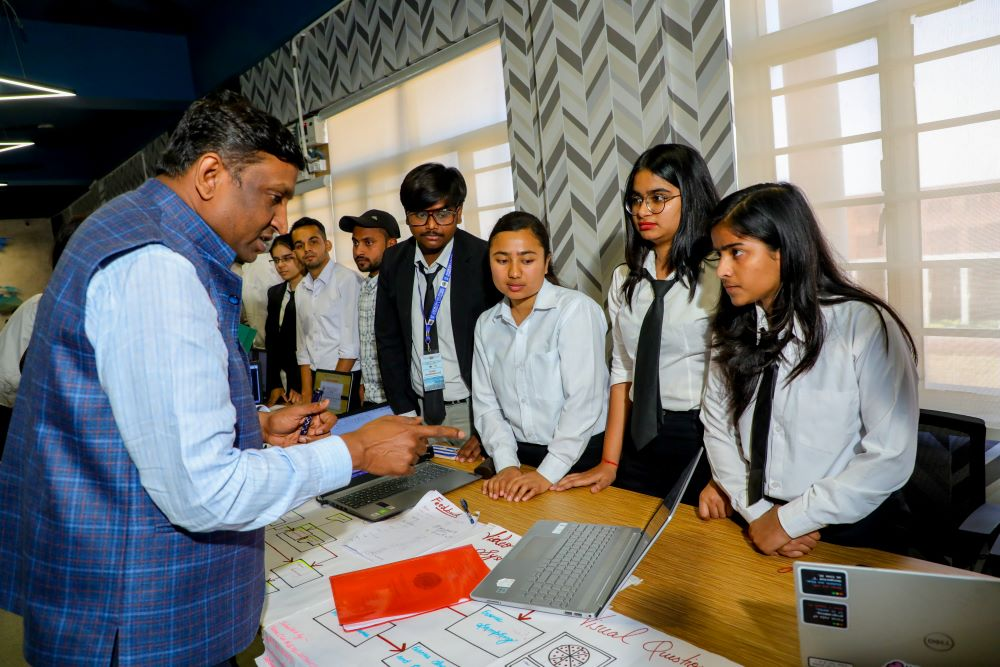
Here’s a look at the placement-wise performance of some top engineering colleges in India:
IITs (Indian Institutes of Technology)
Average Salary: ₹15,00,000 to ₹25,00,000 per annum
Highest Salary: ₹50,00,000 and above
Notable Recruiters: Google, Microsoft, Amazon, Goldman Sachs, Intel, and various other top global firms.
NITs (National Institutes of Technology)
Average Salary: ₹8,00,000 to ₹12,00,000 per annum
Highest Salary: ₹30,00,000 and above
Notable Recruiters: IBM, Cisco, Oracle, Qualcomm, Infosys, TCS, and other leading tech and consulting companies.
IIITs (Indian Institutes of Information Technology)
Average Salary: ₹10,00,000 to ₹15,00,000 per annum
Highest Salary: ₹30,00,000 and above
Notable Recruiters: Microsoft, Google, Facebook, Adobe, and other major tech firms.
BITS Pilani
Average Salary: ₹10,00,000 to ₹14,00,000 per annum
Highest Salary: ₹45,00,000 and above
Notable Recruiters: Amazon, Google, Microsoft, IBM, and other leading companies.
VIT University
Average Salary: ₹6,00,000 to ₹10,00,000 per annum
Highest Salary: ₹20,00,000 and above
Notable Recruiters: Cognizant, Wipro, Infosys, TCS, and various other firms.
Shiv Nadar University
Average Salary: ₹6,00,000 to ₹8,00,000 per annum
Highest Salary: ₹20,00,000 and above
Notable Recruiters: IBM, Deloitte, Infosys, and other major corporations.
St. Andrews Institute of Technology & Management[SAITM]
Average Salary: ₹3,00,000 to ₹12,00,000 per annum
Highest Salary: ₹40,00,000 and above
Notable Recruiters: Autodesk, Tech Mahindra, Infosys, TCS, and other leading companies.
FAQs
Which is the No 1 college for BTech in India?
The Indian Institute of Technology (IIT) Bombay is widely regarded as the top college for BTech in India. Renowned for its rigorous academic programs, cutting-edge research facilities, and a strong emphasis on innovation, IIT Bombay consistently ranks among the Top BTech Colleges in India in national and global university rankings. It offers a diverse range of specializations and has a robust placement record, with graduates securing positions at leading tech companies worldwide. The institute’s vibrant campus life, distinguished faculty, and state-of-the-art infrastructure contribute to its reputation as the premier choice for engineering aspirants in India.
Where is best BTech placement in India?
The best BTech placements in India are typically associated with top-tier engineering institutions such as the Indian Institutes of Technology (IITs), particularly IIT Bombay, IIT Delhi, and IIT Madras. These institutes, recognized as some of the Top BTech Colleges in India, boast strong industry connections and consistently secure high-profile placements for their graduates. Private universities like Birla Institute of Technology and Science (BITS) Pilani and Vellore Institute of Technology (VIT) also have excellent placement records, with students often recruited by leading global tech companies. Additionally, institutions like the Indian Institute of Science (IISc) and top private colleges such as Shiv Nadar University and Amrita Vishwa Vidyapeetham offer competitive placement opportunities, making them among the Top BTech Colleges in India.
What are the top 5 BTech private colleges?
The top five private BTech colleges in India include Birla Institute of Technology and Science (BITS) Pilani, renowned for its rigorous academic programs and global reputation. Vellore Institute of Technology (VIT) stands out for its impressive infrastructure and high placement rates. Manipal Academy of Higher Education (MAHE) in Manipal is notable for its diverse engineering courses and emphasis on research. Shiv Nadar University in Greater Noida offers a strong interdisciplinary approach and strong industry ties. Amrita Vishwa Vidyapeetham in Coimbatore is distinguished by its quality education and advanced research facilities. These institutions are recognized among the Top BTech Colleges in India for their academic excellence and robust career opportunities.
Which state is best for BTech?
The best state for BTech in India can vary based on individual preferences and criteria, but Maharashtra is often highlighted due to its concentration of Top BTech Colleges in India, including IIT Bombay, NIT Warangal, and several reputable private universities. The state’s strong industrial base, especially in cities like Mumbai and Pune, offers excellent internship and job opportunities. Karnataka, with institutions like IIT Dharwad and the Indian Institute of Science (IISc), is also notable for its vibrant tech industry and educational excellence. Tamil Nadu and Delhi are other prominent options, with a mix of prestigious institutions and thriving tech hubs, making them home to some of the Top BTech Colleges in India.
Can I do BTech without JEE?
Yes, you can pursue a BTech without taking the JEE (Joint Entrance Examination) through alternative admission routes. Many of the Top BTech Colleges in India, including private and deemed-to-be universities, offer BTech programs based on their own entrance exams or merit-based admissions. Institutions like BITS Pilani conduct their own tests (BITSAT), while others might consider board exam scores or have specific entrance tests. Additionally, some universities admit students based on their performance in the National Eligibility cum Entrance Test (NEET) or through management quotas. It’s essential to check the specific admission criteria of the Top BTech Colleges in India you’re interested in.

